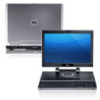Dell XPS 8700 Owner's Manual - Page 82
Changing Boot Sequence, Changing Boot Sequence for the Current Boot - desktop computer
 |
View all Dell XPS 8700 manuals
Add to My Manuals
Save this manual to your list of manuals |
Page 82 highlights
TPM PPI Deprovision Override Exit Save Changes and Reset Discard Changes and Reset Load Default Allows you to enable or disable TPM PPI deprovision override. Allows you to save the changes. Allows you to discard the changes. Allows you to load the default BIOS settings. Changing Boot Sequence Changing Boot Sequence for the Current Boot You can use this feature to change the current boot sequence, for example, to boot from the optical drive to run Dell Diagnostics from the Drivers and Utilities disc. The previous boot sequence is restored at the next boot. 1 If you are booting from a USB device, connect the USB device to a USB port. 2 Turn on (or restart) your computer. 3 When F2 Setup, F12 Boot Options appears in the lower-right corner of the screen, press . NOTE: If you wait too long and the operating system logo appears, continue to wait until you see the operating system's desktop. Then shut down your computer and try again. The Boot Device Menu appears, listing all available boot devices. 4 On the Boot Device Menu choose the device you want to boot from. For example, if you are booting to a USB memory key, highlight USB Storage Device and press . Changing Boot Sequence for Future Boots 1 Enter system setup. See "Entering System Setup" on page 76. 2 Use the arrow keys to highlight the Boot menu option and press to access the menu. NOTE: Write down your current boot sequence in case you want to restore it. 3 Press the up- and down-arrow keys to move through the list of devices. 4 Press plus (+) or minus (-) to change the boot priority of the device. 82 | System Setup














